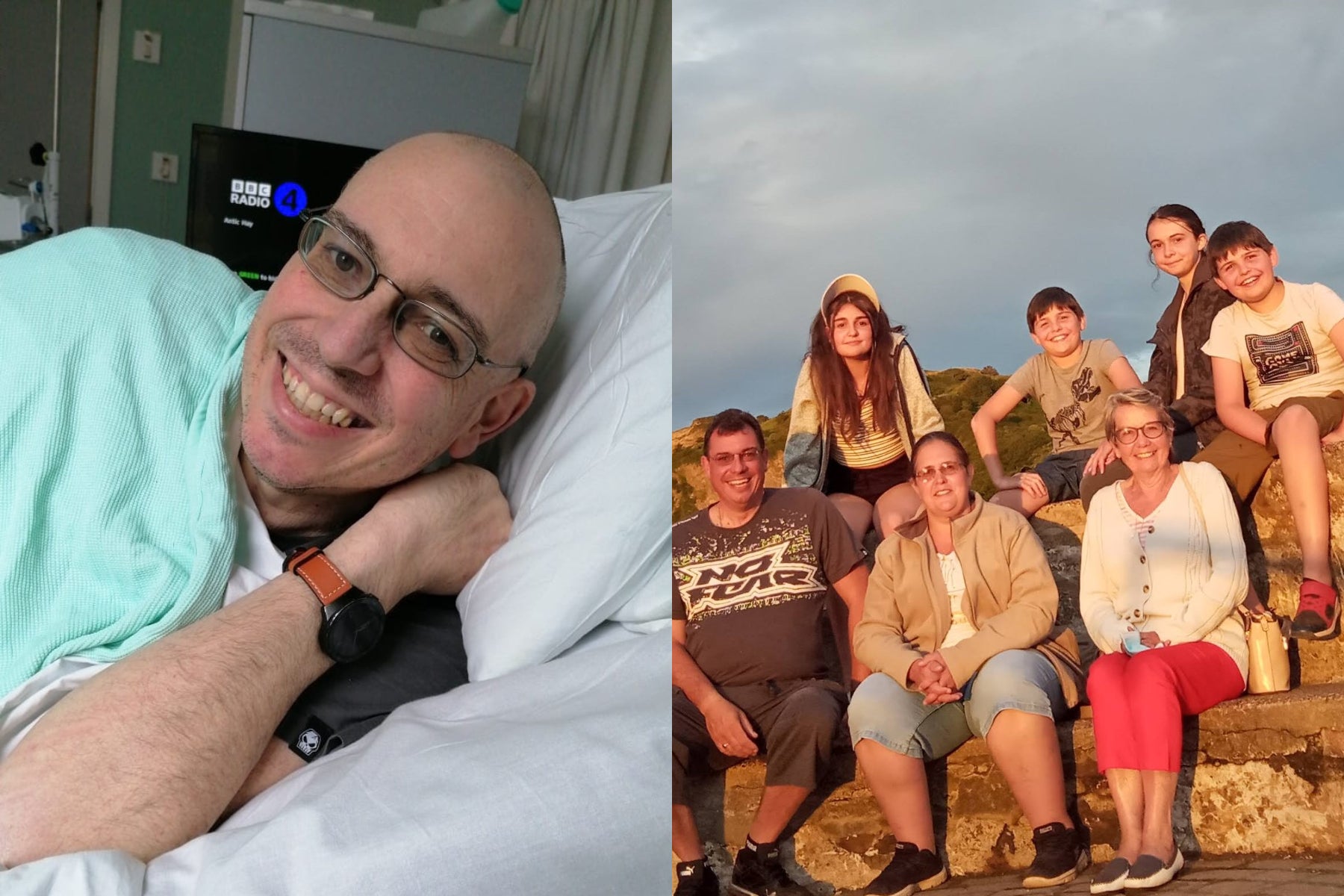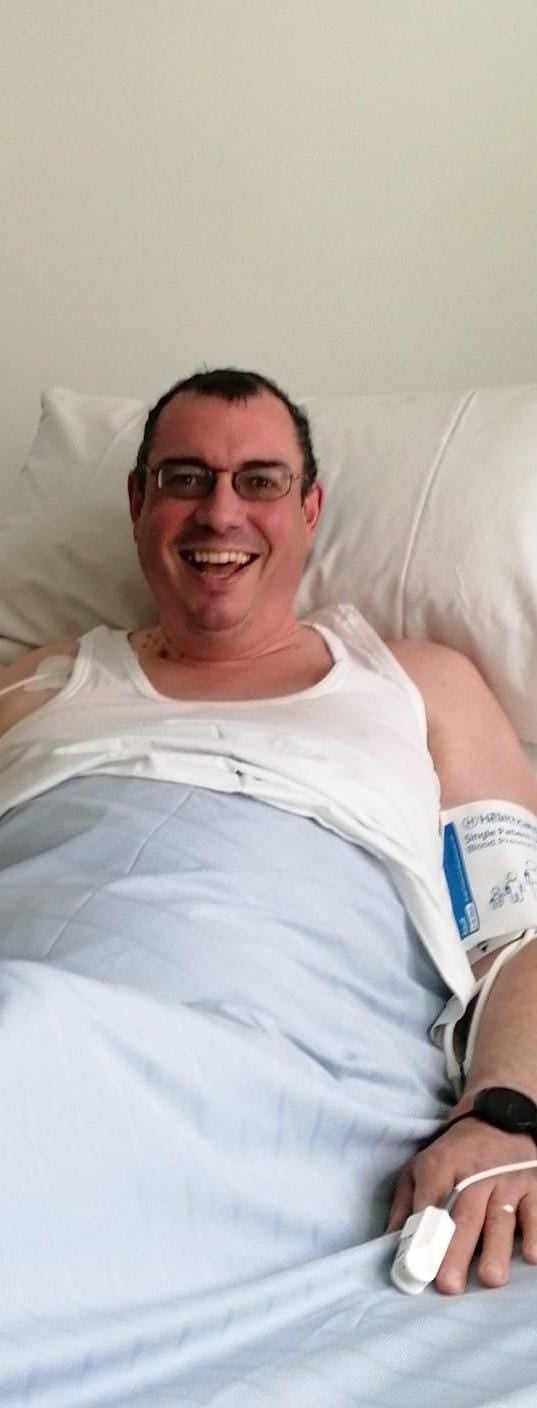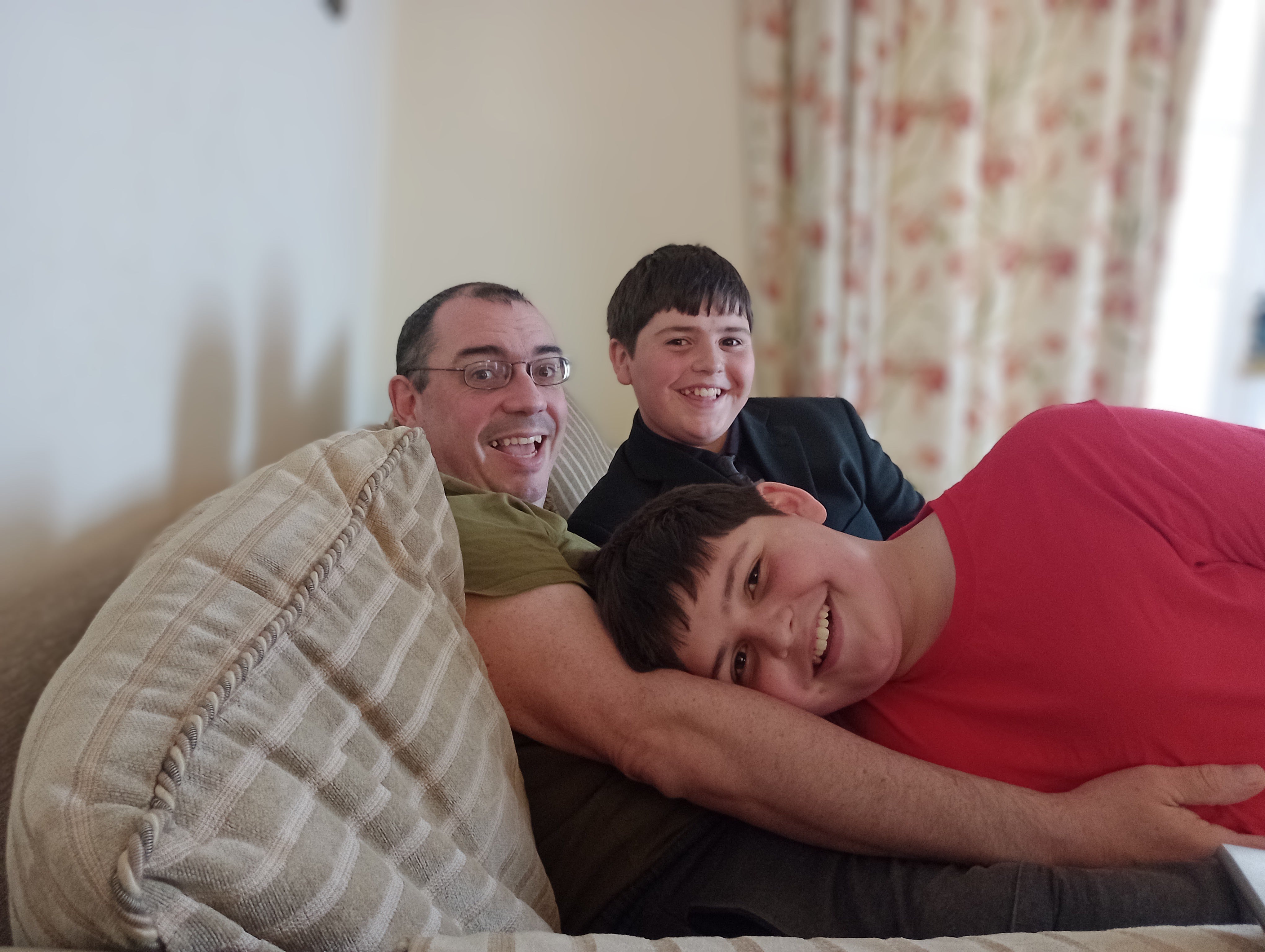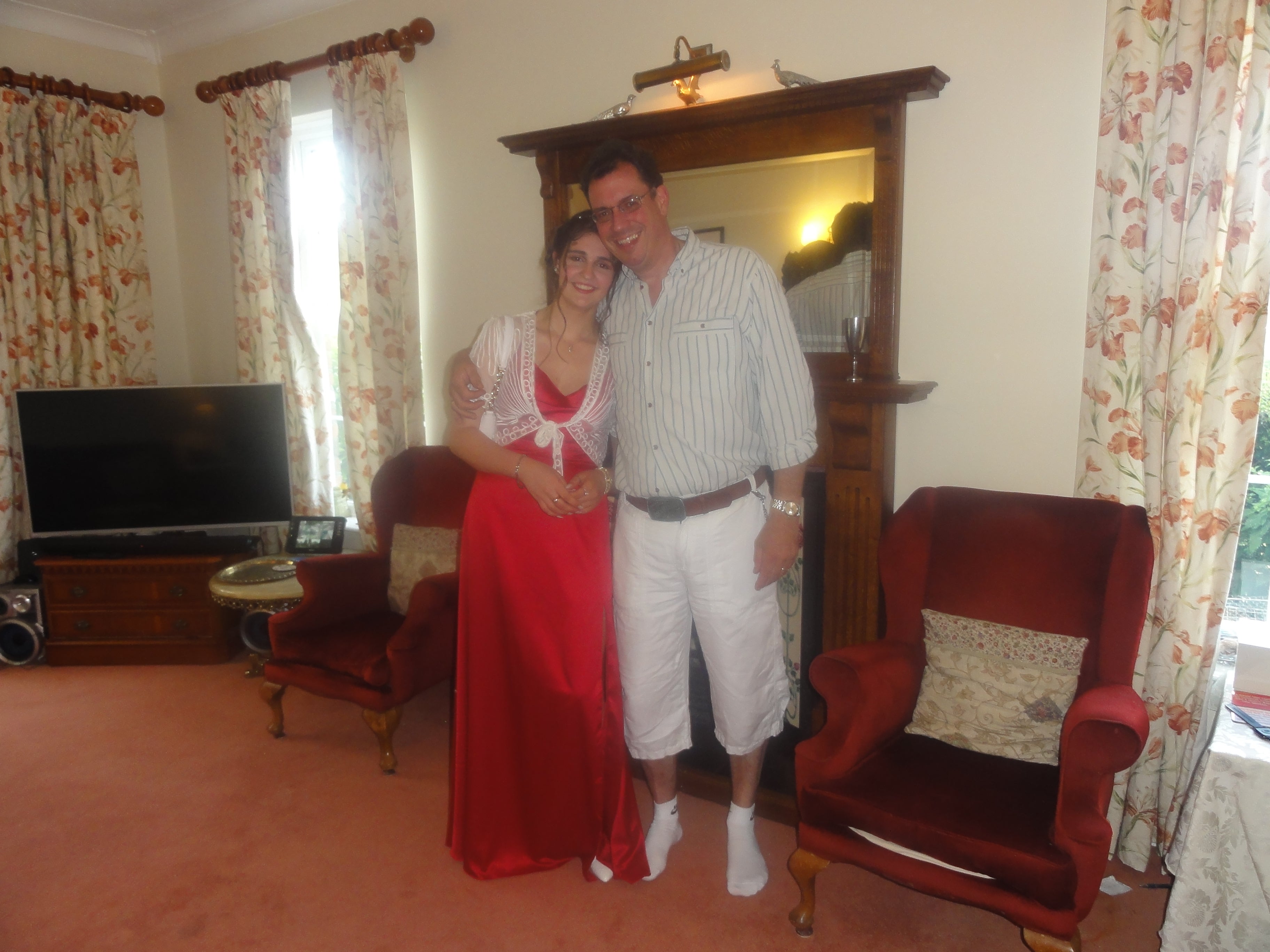Dad told he had 24 hours to live twice after Valentine’s Day diagnosis
Michael Kaynes, 48, was diagnosed with acute myeloid leukaemia

A father-of-four who was told he has leukaemia on Valentine’s Day 2023 and given 24 hours to live on two occasions during treatment, leading him to plan his own funeral, has since reached remission and is looking forward to having a romantic meal with his wife to celebrate their love and one year post-diagnosis.
Michael Kaynes, 48, a self-employed mechanic and caretaker who lives in Lincoln, was diagnosed with acute myeloid leukaemia (AML) – a type of blood cancer – on February 14 2023.
He had planned to go out for a Chinese with his wife of nearly 20 years – Donna, 47, a headteacher – to celebrate, but instead he ended up driving himself to the A&E department at his local hospital in Grimsby after feeling breathless, and a blood test later that evening confirmed he had AML.
Michael then spent several months in hospital, undergoing multiple rounds of chemotherapy – and on two separate occasions during treatment, he was given just 24 hours to live.
After reaching remission, an anonymous bone marrow donation became available, and he underwent a transplant in August 2023 to prevent the cancer from returning, and this saved his life.
Michael celebrated 100 days post-transplant by having fish and chips with his family – and now, one year after his diagnosis, he is looking forward to having a meal out with his wife.

Speaking about his plans for Valentine’s Day this year, he said: “Donna and I are planning on celebrating in Lincoln with a special lunch before heading home to be with family.
“The first consultant said it would be the toughest year of my life, so the one year anniversary will be a huge milestone.”
Michael said he started feeling unwell with flu-like symptoms in the lead up to Christmas in 2022 but assumed it was “nothing serious”.
When he noticed a small lump on the back of his head, he booked an appointment with his GP, who informed him it was “just a virus” and his symptoms should dissipate within six weeks.
On February 14 2023, however, Michael still “didn’t feel quite right” – and after feeling breathless, he drove to the A&E department at Diana, Princess Of Wales Hospital in Grimsby.
Instead of enjoying a meal out with his wife, Michael spent his Valentine’s Day having tests and scans – and a blood test that evening confirmed he had AML.
“I drove myself to Grimsby, thinking I’d be there for a couple of hours and come home again, but that didn’t work because I didn’t come home that night at all,” he said.
“The next day, the doctor said: ‘We would have given you three weeks, you would never have made those six weeks’. It was that far advanced.
“But other than feeling tired and short of breath going up the stairs, I had no other symptoms at all. It was completely out of the blue.”

Michael said it was a “whirlwind” after his diagnosis, as he was transferred to Castle Hill Hospital in Hull and started the first round of chemotherapy, which lasted several weeks.
His wife Donna was able to visit, but he could not see his children – Charlie, 18, Hollie, 15, and Thomas and Joseph, both 12 – due to the risk of him contracting an infection.
Michael knew he had “a long journey” ahead of him, but he could never have prepared himself for the months that followed.
“One of the junior doctors that was on the ward came in and said: ‘There’s no messing around with this, it will be the hardest year of your life’ – and he wasn’t wrong,” Michael said.
“I just said: ‘I don’t care what you do, I don’t care how you do it, I don’t care if you want to run trials, just do whatever will kick it down the road the longest’.”
During his first round of chemotherapy, Michael lost all his hair and developed ulcers and a fungal infection, meaning he struggled to eat and swallow and he lost his appetite.
After finishing the treatment, a bone marrow biopsy showed the leukaemia was still present, meaning Michael had to undergo a second, more intensive round of chemotherapy.
Michael then developed a perianal abscess and an infection, along with E. coli and sepsis, and was taken to the high dependency unit, which was “the hardest night” he went through.
This is when Michael was told he might not survive, so he started to plan his funeral, booking a grave space at his local churchyard, and he wrote letters for his four children.
“One of the consultants came in and said: ‘I’ve got to tell you, we reckon you’ve only got 24 hours if these antibiotics don’t kick in, and then there’s nothing more we can do’,” he said.
“I felt poorly, obviously, but I didn’t think at any point I was on the last 24 hours.”
Michael said, luckily, he “pulled through”, but as his condition worsened and his blood pressure continued to drop afterwards, a do-not-resuscitate order (DNR order) was then issued.
This is when he faced the news that he might only have 24 hours to live for the second time.
The DNR order was soon overturned, however, and after undergoing a procedure to remove the abscess, the results from a second bone marrow biopsy revealed he had reached remission.
This meant he was able to go home for Father’s Day and his birthday on June 19 2023, before receiving the news that a suitable bone marrow donation had become available.
Michael then underwent more chemotherapy before having a bone marrow transplant on August 11 at St James’s Hospital in Leeds, which is the day he was “reborn”.
“On the morning of the transplant, they bring you in a birthday card to say, ‘This is day zero, this is where you get reborn’,” Michael said.
“You think, ‘it’s not my birthday’, but it actually is because, from today, you are reborn, you are a new person.”

Michael ended up developing Graft-versus-host disease, where white blood cells attack the patient’s body, post-transplant, but he was able to recover and celebrate the 100 day milestone.
He has been taking medication and immunosuppressants but will soon enter the “watch and monitor” phase of his treatment plan, hoping the cancer does not return.
Throughout his “rollercoaster” journey, Michael said the hospital staff have been amazing, and it was “the little things” – such as one of the nurses bringing him sausage sandwiches every night – that helped him stay positive during his treatment, along with the support from his family and friends.
Now, one year post-diagnosis, Michael said the minutiae of everyday life, even the family arguments, have become “special”, and he would urge anyone to get any unusual symptoms checked.
“I just feel incredibly lucky that I got here… and with the donor, it’s such an amazing thing that someone can do,” Michael said.
“That person has changed not just my life, but the kids’ lives and Donna’s life.”
Reflecting on the past year, he added: “You’re not going back to the normal life you had before, but the normal life now is what we’re going to make it.”
For more information and support, call Leukaemia Care’s freephone helpline on 08088 010 444, email support@leukaemiacare.org.uk, or visit its website at: leukaemiacare.org.uk.
Join our commenting forum
Join thought-provoking conversations, follow other Independent readers and see their replies
Comments
Bookmark popover
Removed from bookmarks